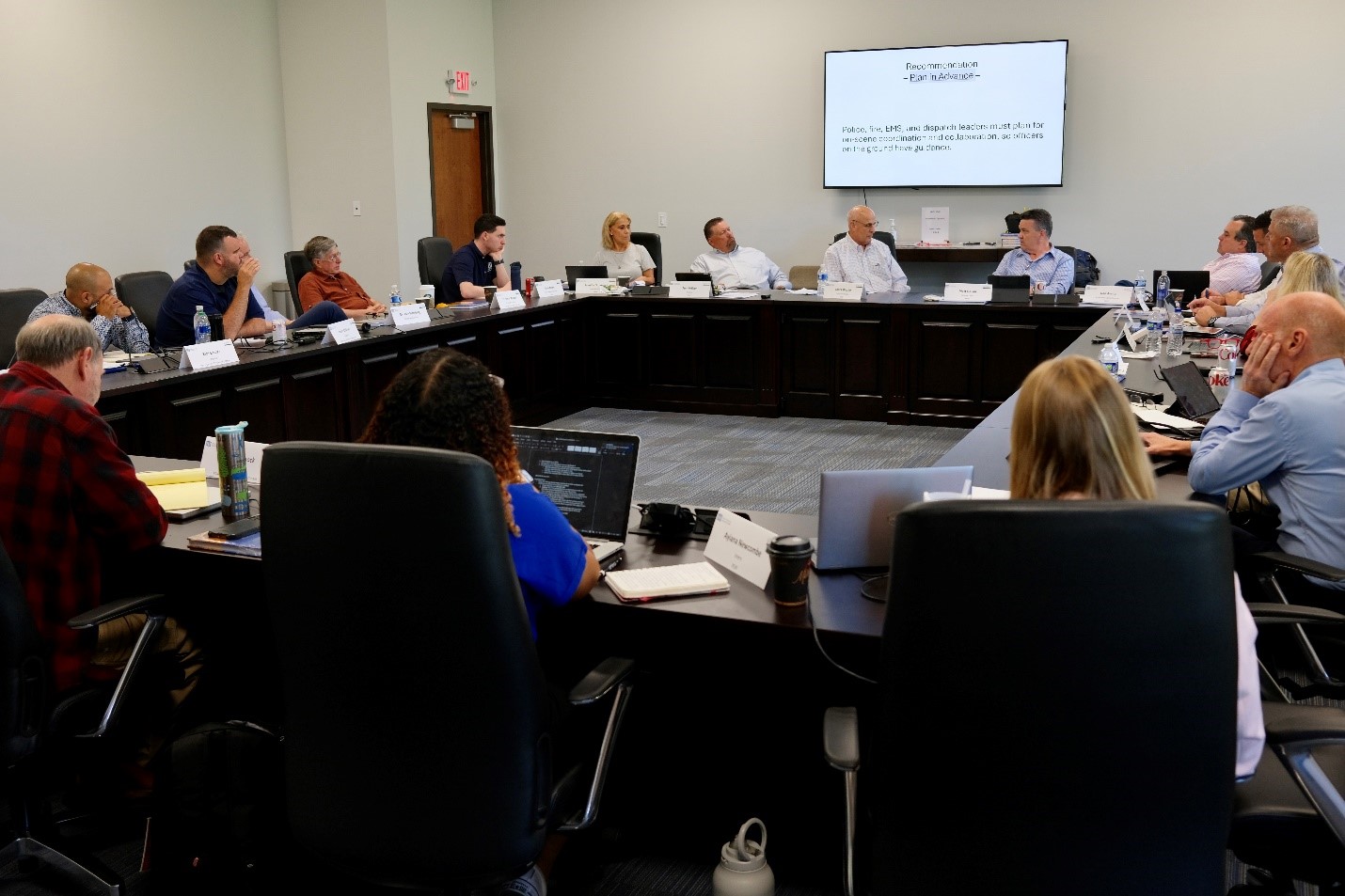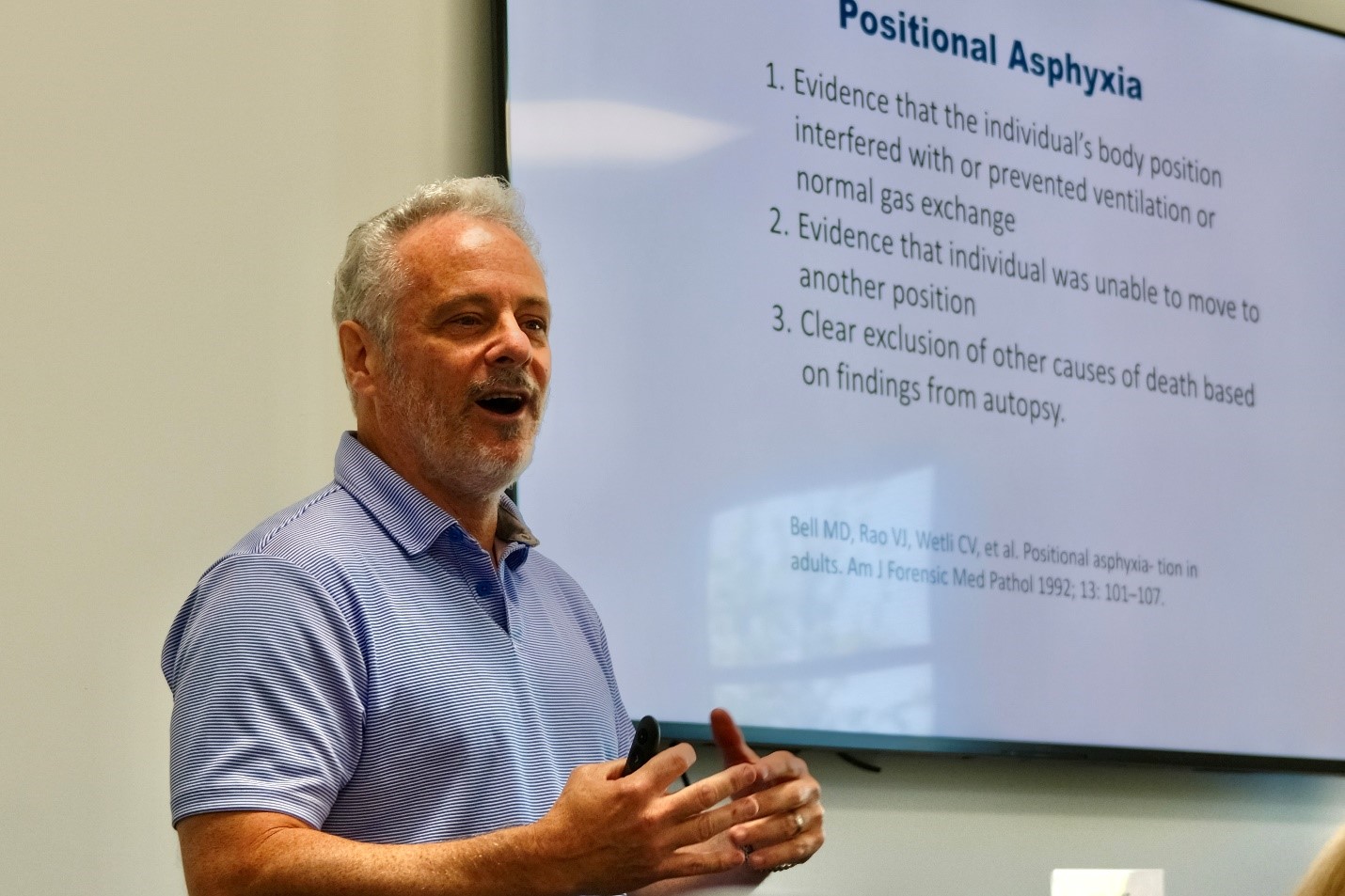|
June 29, 2024 Reducing restraint-related deaths, and remembering PERF’s longest-serving employee
PERF members, Cops, EMTs, and doctors have one very important thing in common – they can be called on to make life and death decisions under what are often high-stress conditions. This week PERF gathered a group of experts from those three professions to develop guidance for the field about responding to medical/behavioral emergencies. As I wrote to you in March, I think the public debate about the use of the term “excited delirium” has avoided the harder issue of how police, EMS, and others can improve their response to medical/behavioral emergencies that are often drug-induced. And in May, I wrote to you about a lengthy series of articles by the Associated Press on deaths related to police restraint. Their key finding was that “over a decade, more than 1,000 people died after police subdued them through means not intended to be lethal, an investigation led by The Associated Press found. In hundreds of cases, officers weren’t taught or didn’t follow best safety practices for physical force and weapons, creating a recipe for death.” The AP found that at least 740 of those deaths involved prone restraint and at least 94 of the individuals died after being given sedatives. In both columns, I told you that we planned to bring a group together to develop some much-needed guidance on how to best handle these challenging circumstances, and this week we assembled that group at our ICAT Facility in Decatur, Illinois. PERF brought together cardiologists, medical examiners, emergency medical physicians, EMS representatives, medical researchers, and tactical police experts to examine how best to resolve these challenging situations with the lowest risk of harm to the person in crisis.
These are difficult and risky situations. Officers clearly don’t receive enough training on responding to what should be viewed as medical calls but are often perceived as something quite different. Interestingly, in bringing police and medical professionals together, we were able to reach agreement on most issues and made progress toward delivering some much-needed guidance to the field about how to handle these incidents. The topics we discussed this week in Decatur included:
We discussed these and other issues and will publish guidance later this year. I’m grateful to the professionals who came together to help us and the Howard G. Buffett Foundation for its support, and I hope our publication will push agencies to reevaluate their policies, training, and supervision to reduce the number of restraint-related deaths.
Howard G. Buffett welcomes the working group to the ICAT Training Facility in Decatur, IL. Dr. Alon Steinberg explains the causes of positional asphyxia Remembering PERF’s longest-serving employee This week PERF lost our longest-serving staff member, Jennifer Brooks. Hired by our first Executive Director, Gary Hayes, in 1978, Jennifer devoted her entire professional career to PERF. She brought warmth and personality to everything she did as our Travel and Office Manager. As part of her role, she met new staff members on their first day of work, welcomed them to PERF, and introduced them to everyone. She thought of all the little things that others might miss, like watering the plants in everyone’s offices, and she kept her own office at a warm (some might say sweltering) temperature where her plants could flourish.
I could tell countless stories about Jennifer. She made sure the office was well-stocked with snacks, and when I told her I liked pistachios, I came in the next day to find she had filled all my desk drawers with bags of them. And one evening I was leaving the office and spotted her and our CFO, Ken Hartwick, dancing in the hallway (Ken was demonstrating some new steps). They looked up at me and we all broke out in laughter. Everyone at PERF has similar sweet stories about Jennifer. She made all of us smile and feel at home, and we’re grateful she made PERF her home for 45 years. We will all miss her very much.
Have a fantastic weekend! Best, Chuck |






